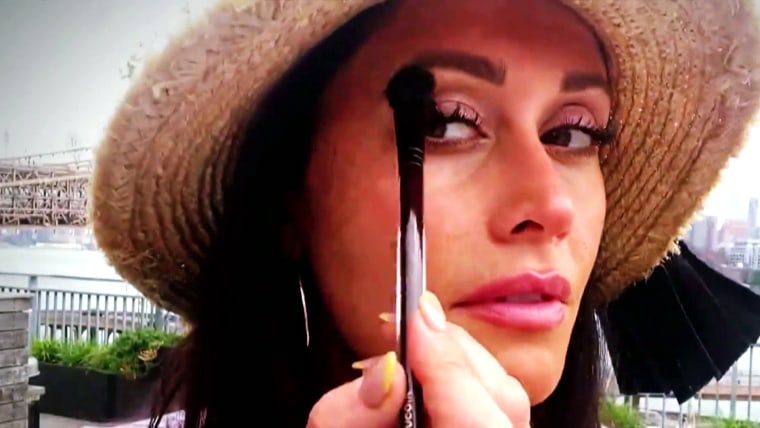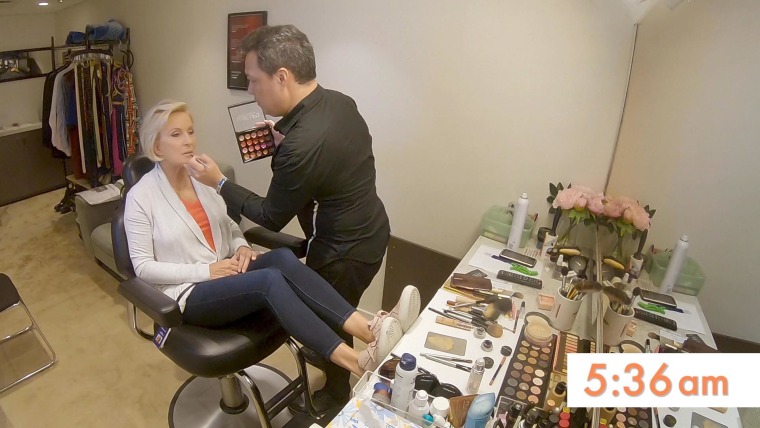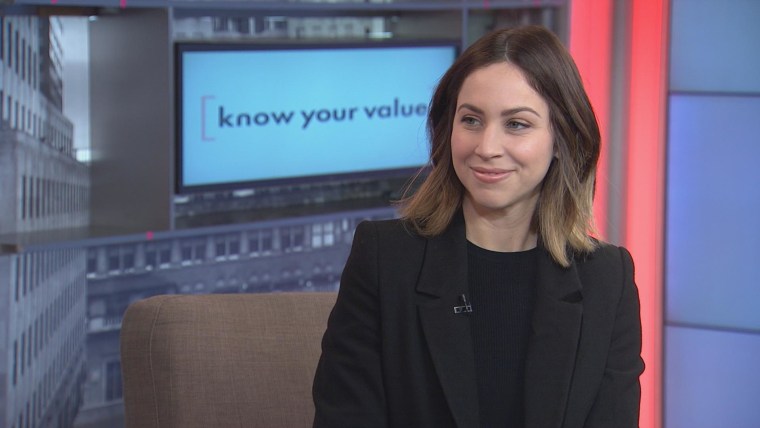How a passion for makeup turned this founder into one of America’s wealthiest self-made women
Long before NYX Cosmetics founder Toni Ko took the beauty industry by storm, she learned the ropes from her parents as a teenager in Los Angeles. Having immigrated to the U.S. from South Korea at the age of 13, Ko watched as her family built their perfume and makeup business from the ground up. During afternoon and weekend shifts, Ko took mental notes on “the value of sweat equity” and what she calls “conscious capitalism.”
“My mom was always a very fair businesswoman,” Ko told Know Your Value. “She was always fair to her vendors and also to her customers. And by doing that, she was being fair to herself. She made sure anybody who sold merchandise to her made money. She made sure she made money herself [and] she made sure her customers got their value’s worth for the money that they spent.”
At just 25 years old, Ko used those lessons, her own passion for makeup, her near-encyclopedic knowledge of the products on the market and the $250,000 her parents gave her in seed money to create NYX Cosmetics in 1999. From a 600-square-foot showroom in Los Angeles, she pulled in $4 million dollars in retail sales during the company’s first year. By staying ahead of trends, harnessing the power of social media and landing NYX in big-box stores like Target and Ulta, she grew her enterprise into a behemoth — then sold it to L’Oreal for a whopping $500 million in 2014.
“There were a lot of people who couldn’t afford the high-end department store products, and the high-end department store products had really good quality but they were very expensive,” Ko remembered. “And then the opposite: the budget products were very affordable, but they were not so good in quality.” Ko wanted to bridge that gap.
At the time, Ko was a rare breed among founders: Young, female, and Asian-American. But in her differences, she found her strengths.
“Every time I was doing product development, I asked two questions to myself: ‘Do I like it? Would I buy it?’” Ko said. “And if it’s a ‘yes’ and ‘yes,’ I made that product.”
It was a far cry from the way other makeup brands were operating at the time, she recounted. As a young woman seeking affordably priced, high-quality cosmetics for herself, she offered her customers the same products she wanted to wear.
“I was able to communicate with my vendors exactly what I wanted,” Ko said of the relentless research and development process. Letting her own tastes and preferences guide the way, she charted NYX’s course in a way competing business leaders couldn’t.
“I don’t think a lot of the guys in suits were thinking that way,” Ko said of her personal attention to developing NYX products. “They were just so stuck on the formula that had been existing in the market for the last 10, 20 years… They fell into selling the same thing over and over again but here I was,” she said, tweaking the formulas to add more texture, make a product less greasy, pump up notes of red, blue or yellow.
“When people tried the product, it really resonated because it was for the consumer, made by a consumer,” Ko said.
While being the consumer herself led to great successes in the production sector of her work, her youth and her femininity cut both ways in the male-dominated industry.
“When I started in 1999, this was a different time,” Ko said. “Because I was young and a woman on top of everything else, I think this was kind of like the David and Goliath story, and I think people kind of underestimated my capabilities, and that was totally fine for me and I always thought that was actually adding value to my brand,” she said. “And there’s beauty in being underestimated, especially in the early part of your business.”
She said she shook off the competition by paying less attention to their work and focusing more on an independent path. That meant keenly aligning her company’s trajectory with history-making headwinds. For example, in the immediate aftermath of the 2008 financial crisis, Ko was well-positioned to tap into consumers’ desire for budget-friendly products.
And around the same time, she capitalized on the advent of “vlogging” by partnering with beauty influencers paving a way on YouTube. Keeping close tabs on what was trending on the internet paid off, big time. She pointed to one product that wasn’t selling well in stores – but then started flying off the shelves.
“This item was actually on the discontinued list, but out of nowhere, we just saw this item going up in sales volume weekly — it was just a huge curve up,” Ko said. “And we finally figured out that makeup artists were using this item as an eyeshadow base.” At the time, that product category didn’t even exist yet, but the pros were getting the word out online.
“When that happened, all the bells went like ‘ding-ding-ding-ding-ding’ in our company and we’re like, ‘Oh my god, this is the future. This is the future of marketing,’” Ko said. They began reaching out to first-generation influencers making content on Youtube — some of whom now have a star-quality following — and setting up in-person meetings. When Instagram launched a few years later, NYX was well positioned to hop on the bandwagon.
The company was in a prime position to sell in 2014, and Ko and her team inked a headline-grabbing $500 million deal with L’Oreal. But to Ko’s surprise, after that high came somewhat of a crash.
“The chase was more exhilarating than the kill itself,” said Ko, who looks back on the nine months it took for the transaction to complete as “one of the best times of [her] life,” involving a roller-coaster of a learning curve, from hiring an investment banker to represent her company, to going out and making her sales pitch. “I wouldn’t trade that experience for anything else,” she said.
“And then, of course, the deal gets consummated and the wire transfer hits my account and I say ‘bye’ to everything and almost the only thing that I have known in the last 15 years,” Ko said. The void revealed a tough reality.
“I really had no life,” she said. “I would explain that feeling like a helium balloon that’s been popped with a sharp needle … I actually went into a really serious depression for about six months, and I decided to start another business to get myself out of the depression.”
Her second company, a sunglass company called Thomas James LA, endured for three years. But while she knew how to run a successful business, she didn’t have the depth of knowledge in the sunglass industry that had guided her work in cosmetics. Despite the flop, she views her time working on Thomas James LA as one of her most valuable endeavors.
“I’ve learned so much more from my failure than my success,” Ko said. “I had financial loss, but I had such a gain on the personal side, I would not trade those three years.” The new perspective helped her tamp down her own ego and she used the opportunity to get to know herself better.
These days, she’s focused on growing Bespoke Beauty Brands, her brand incubator that partners with influencers, celebrities, designers and models to co-create and launch niche beauty brands. The first brand Bespoke launched is with Kim Chi, a Korean-American drag queen who was featured on “RuPaul’s Drag Race.”
“She’s an amazing artist,” Ko said, “and, you know, in 1999 this would have been unthinkable.” Elevating diverse voices like hers is key to Bespoke Beauty Brands’ mission. “It was her life’s dream to build a cosmetics empire, and together we’re building brick by brick.”
Her best advice for future female founders is deeply rooted in knowing and embracing one’s value.
“One thing I have never done the entire time I’ve been an entrepreneur, or as a person, is that I’ve never walked into a meeting thinking, ‘I’m a female entrepreneur’ or ‘I’m an Asian-American entrepreneur,’” Ko said. “When I walk into a meeting, I’m an entrepreneur, that’s it. I mean, that’s it. We are equal.”




